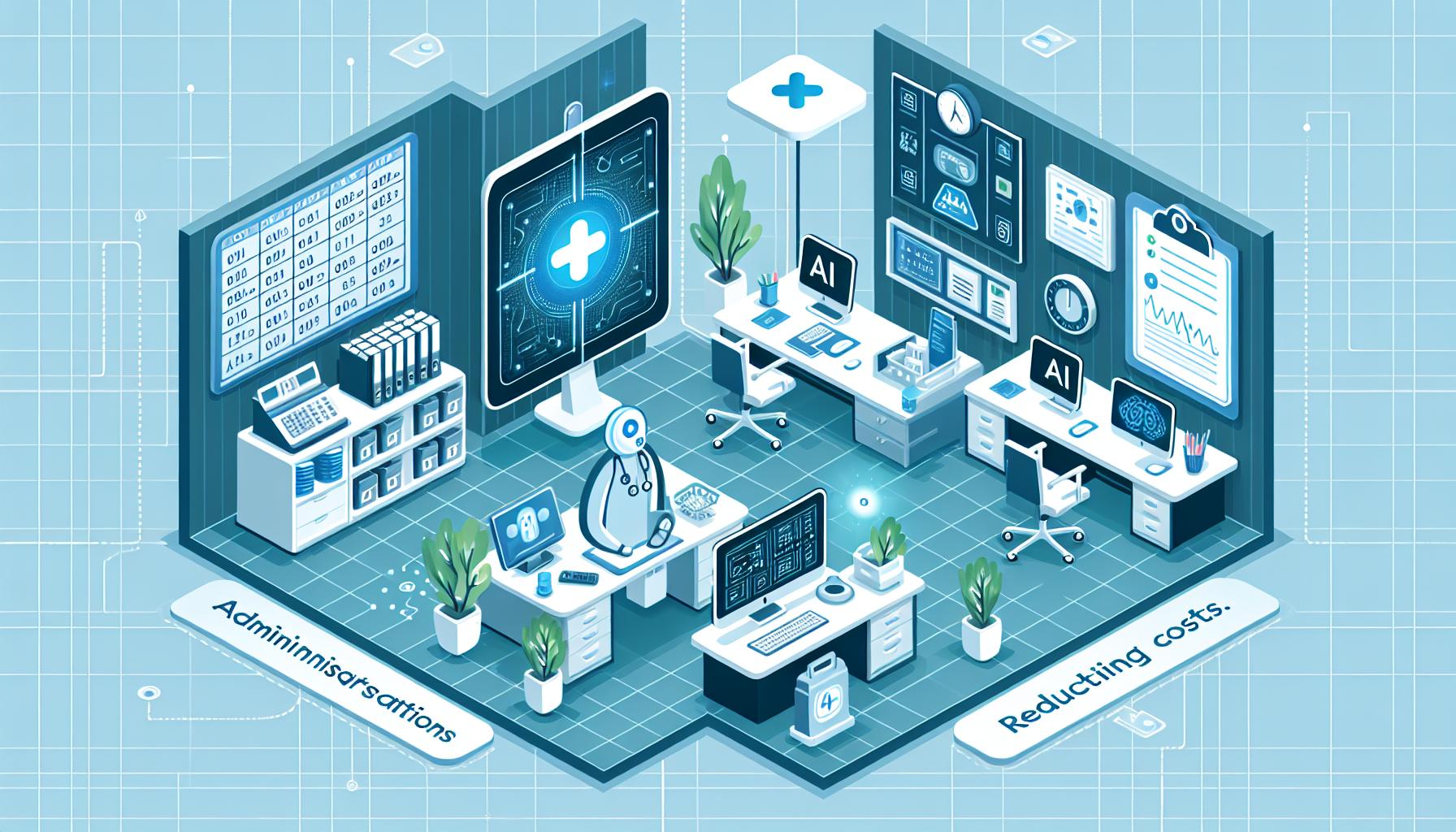AI for Healthcare Administration: Streamlining Operations and Reducing Costs

Introduction
In recent years, Artificial Intelligence (AI) has made significant strides in transforming various sectors, and healthcare is no exception. While much attention has been given to AI in direct patient care, an equally important, yet often overlooked, area is healthcare administration. By leveraging AI technology, healthcare facilities can streamline operations, reduce administrative burdens, and substantially cut costs. This blog will delve into how AI is being utilized to optimize resource allocation, automate routine administrative tasks, and enhance patient management systems.
Automated Scheduling
One of the most time-consuming tasks in healthcare administration is scheduling. Whether it is arranging patient appointments, organizing staff shifts, or coordinating surgeries, scheduling requires meticulous attention to detail. AI-powered scheduling systems can analyze vast amounts of data, including patient histories, staff availability, and resource constraints, to create efficient and conflict-free schedules. This not only saves time but also reduces the likelihood of errors, ensures optimal use of resources, and enhances patient satisfaction by minimizing wait times.
Billing Processes
Billing is another critical area where AI can make a significant impact. Traditional billing processes are often fraught with inefficiencies and prone to errors, leading to delays in payments and increased administrative costs. AI-driven billing systems can automate the entire billing process, from coding and submitting claims to tracking payments and handling disputes. By doing so, these systems can significantly reduce the time and effort required for billing, minimize errors, and ensure faster reimbursement from insurance providers. Moreover, AI can help detect fraudulent claims and prevent revenue leakage, further enhancing financial stability.
Inventory Management
Effective inventory management is crucial for the smooth operation of any healthcare facility. Overstocks or shortages of medical supplies can disrupt services and lead to increased costs. AI-based inventory management systems can analyze usage patterns, predict demand, and automatically reorder supplies when needed. This not only ensures that essential items are always available but also reduces storage costs and waste associated with overstocking. Additionally, AI can help in tracking the expiration dates of perishable items, ensuring that they are used before they become invalid.
Resource Allocation
Optimizing resource allocation is essential for maximizing the efficiency of healthcare facilities. AI can analyze data from various sources, such as patient records, staff rosters, and equipment usage, to make informed decisions about resource allocation. For example, AI can predict patient admission rates and adjust staffing levels accordingly, ensuring that there are enough healthcare providers available during peak times. Similarly, AI can optimize the use of medical equipment, reducing idle time and ensuring that critical resources are always available when needed. This not only improves operational efficiency but also enhances the quality of patient care.
Patient Management Systems
AI-powered patient management systems can significantly enhance the coordination of patient care. These systems can track patient information, provide reminders for follow-up appointments, and offer personalized care plans based on patient data and medical history. By automating these routine tasks, healthcare providers can focus more on direct patient care, improving overall patient outcomes. Additionally, AI can help identify patients who are at risk of developing certain conditions and ensure that they receive timely interventions, potentially preventing serious health issues and reducing long-term healthcare costs.
Conclusion
The integration of AI in healthcare administration holds immense potential for streamlining operations, reducing administrative burdens, and cutting costs. Through automated scheduling, AI-driven billing processes, intelligent inventory management, and optimized resource allocation, healthcare facilities can operate more efficiently and provide better care to their patients. As AI technology continues to advance, we can expect even more innovative solutions to emerge, further transforming the healthcare industry.




